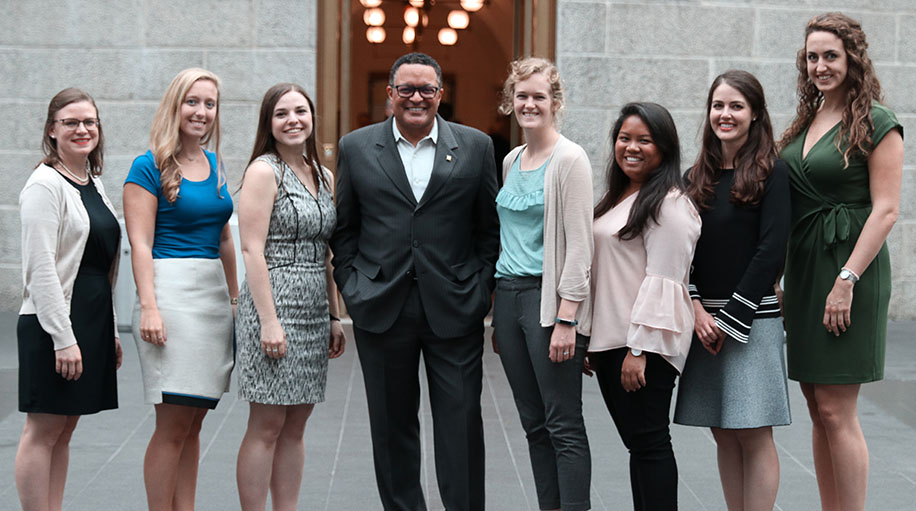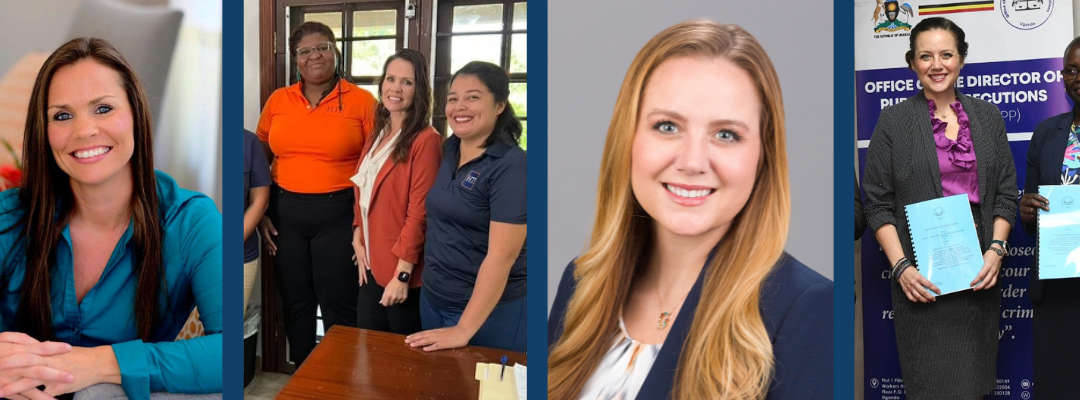Kenneth B. Morris welcomed The Human Trafficking Institute’s second class of Douglass Fellows at the end of their orientation in Washington, DC. Morris is co-founder and president of Frederick Douglass Family Initiatives and the great-great-great-grandson of Frederick Douglass and the great-great grandson of Booker T. Washington. The fellowship is named after Douglass.
Morris toured the U.S. Capitol with the seven Fellows and then spoke with them about the similarities and differences between historical and modern slavery. Within the past 250 years, countries around the globe have witnessed a seismic shift in the legality of slavery – an act that was once socially acceptable is now forbidden in most countries. Nevertheless, modern day slavery still exists.
“Slavery has existed throughout time and humanity,” Morris said. “It’s always been there, it just changes its shape and its form. It takes on a new look, even in our own country.”
Morris explained that there is a lot of commonality between modern day slavery and historical slavery. He also pointed out that the basic elements of slavery, whether contemporary or historical, remain the same.
“It’s about money and economics,” Morris said. “It’s about exploiting the most vulnerable among us.”
He stressed the importance of language in the fight against human trafficking – citing the historic difference between words like “runaway slave” and “freedom seeker” – and the implications of those terms. The first, Morris explained, puts the power into the hands of the slave owners. The second, on the other hand, delegates power to those fighting against unjust laws.
“In your work, think about language and how changing one word can really help shape the narrative in a positive way in people’s minds and the way that they think about slavery and the people who are involved.”
During their orientation, the Fellows also met their mentors – all of whom hold senior positions in federal agencies and nongovernmental organizations – who work in the fight against human trafficking. The agencies include Federal Bureau of Investigations, U.S. Department of Justice, International Justice Mission, U.S. Department of State, National Center for Missing and Exploited Children, The Human Trafficking Pro Bono Legal Center, and McGuire Woods LLP.
Throughout the year, the Fellows will participate in a number of projects, including writing for the Institute and Trafficking Matters websites, conducting legal research, and hosting advocacy events at their law schools.
In its inaugural year, the Douglass Fellowship accepted the top 10% of applicants. The Fellows study at elite law schools across the country. The Fellowship runs from September through April and supports the Institute’s efforts to provide clear, data-driven, thought leadership to scholars and criminal justice practitioners in the fight against human trafficking.
Click here to read more about the Douglass Fellowship program.




